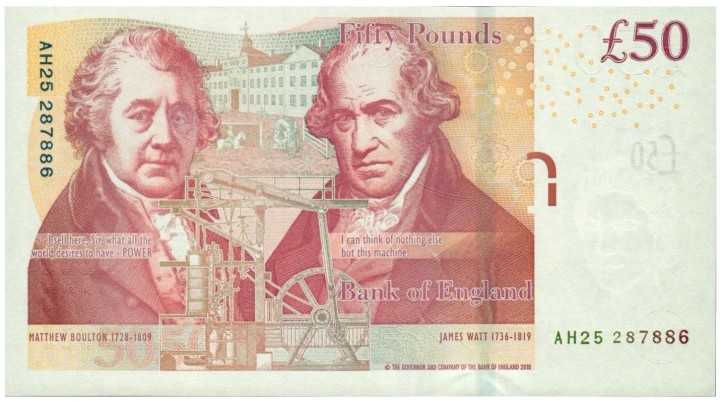James Watt Severely Hindered Technological Progress - a Short Biography
June 29, 2020
on
on
On January 19, 1736, James Watt was born in Scotland, in Greenock to be precise, a little town to the north-west of Glasgow on the south bank of the Clyde, to be even more precise. The family was extended three years later with the birth of a brother, John, and once more in 1740 when his sister Jean arrived. Their father, James Henry, was into ship building, while the well-educated mother Agnes took care of school & the gang.

André-Marie Ampere
Georg Simon Ohm
Michael Faraday

Skipped his apprentice period
James was manually gifted and quickly showed engineering skills. At the age of eighteen he went off to London to study instrument making. A year later he came back to Glasgow where he was not allowed to start a business because in his hurry, he had skipped the seven-year apprentice period. But James was lucky enough to land a job at the University of Glasgow where they needed his skills to maintain and repair astronomical instruments.James Watt did not invent the steam engine
James Watt is often credited with the invention of the steam engine, but such machines were already in operation since about 1712 when Thomas Newcomen created the atmospheric engine. It was only fifty years after their introduction that James became interested in steam engines and started to do some experiments. However, he quickly let the subject drop because of the difficulty of creating a working machine. It was only a few years later, when he was asked to repair the steam engine at Glasgow University, that James became interested again.Splitted the piston
Because it was a smallish steam engine, it suffered a lot from heat loss and didn’t really work well, and James started thinking about how to improve it. When he realized that the machine could be made much more energy efficient by splitting the piston that doubled as a condenser into a piston and a separate condenser, the "modern" steam engine was born. Of course, James filed a patent for it.Teamed up with Matthew Boulton
Modern or not, steam engines remained difficult to construct and so James needed money. When his patents fell into the hands of businessman and manufacturer of metal products Matthew Boulton, the future started to look bright. The two teamed up and created a blooming business out of James’ improved steam engine.Protectionist attitude
It is said that James Watt has done everything in his power to prevent other people from profiting from his invention without paying him first or from bypassing it. His later life seemed to have revolved around filing generic and vague patents intended to block inventions and techniques that might have had a negative impact on his financial well-being. Critics even say that James protectionist attitude has severely hindered technological progress in this period until his patents finally expired in 1800.Became a SI unit anyway
Although James never set a foot in electrical engineering, electrical and electronics engineers encounter his name every day, thanks to the SI unit that replaced the horsepower (another invention of James Watt), and the law of electric power P = V×I.More biographies
Alessandro VoltaAndré-Marie Ampere
Georg Simon Ohm
Michael Faraday
Read full article
Hide full article


Discussion (1 comment)